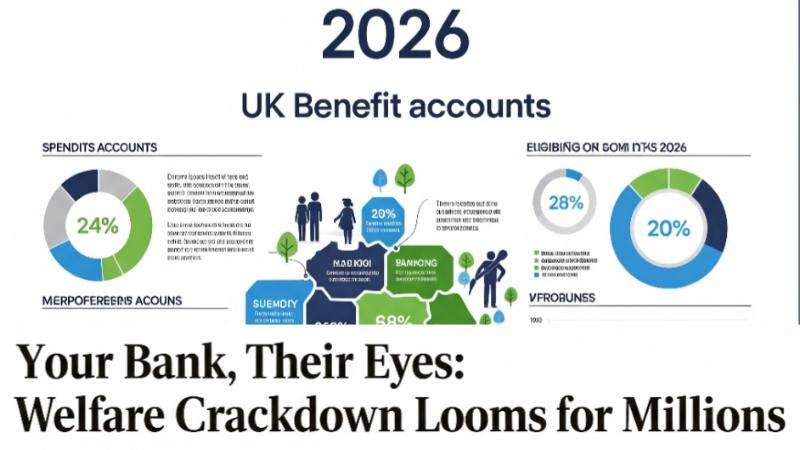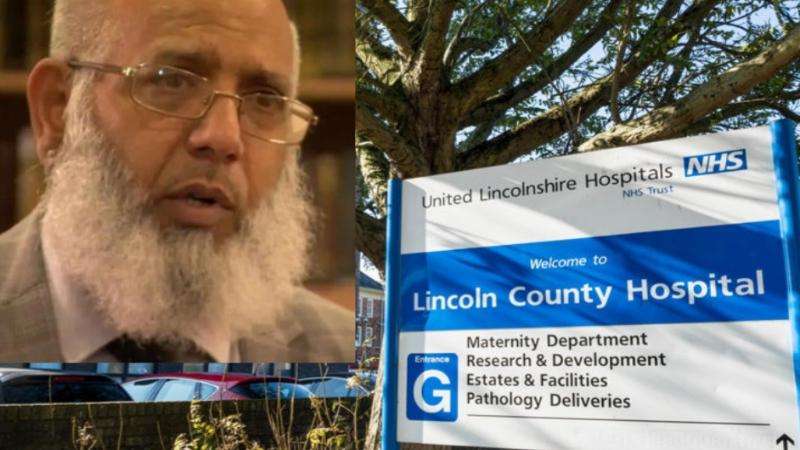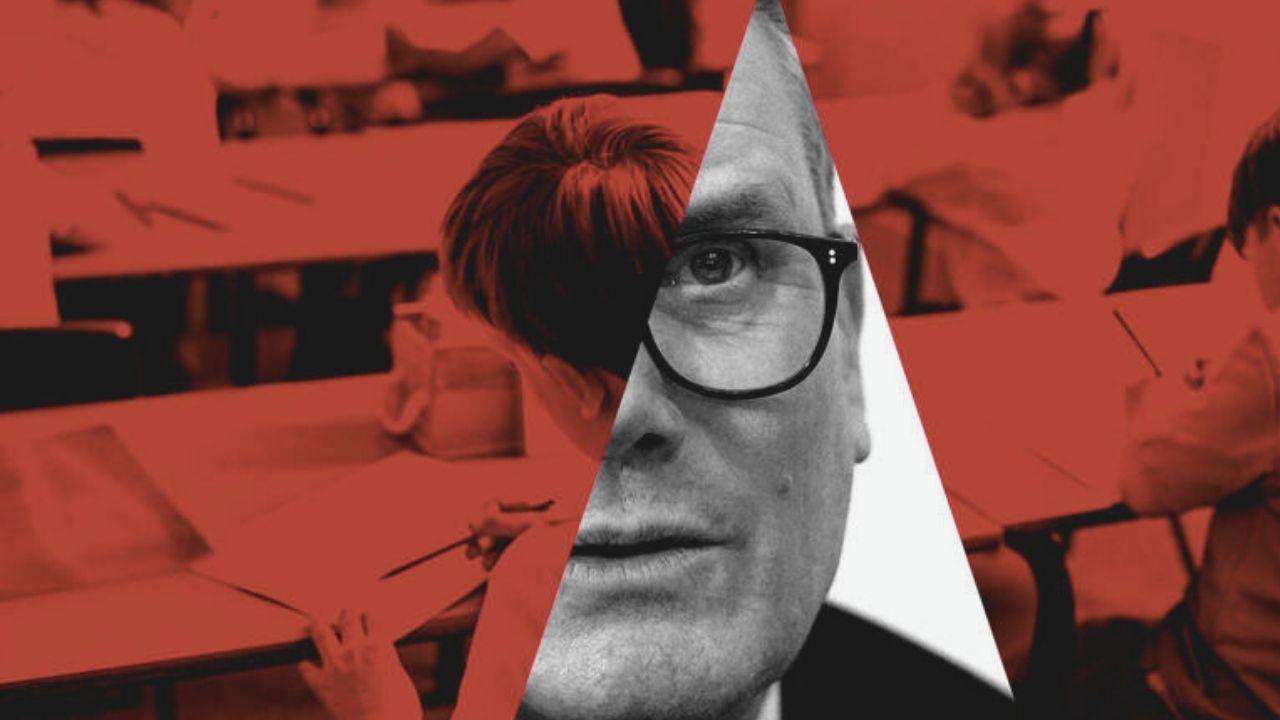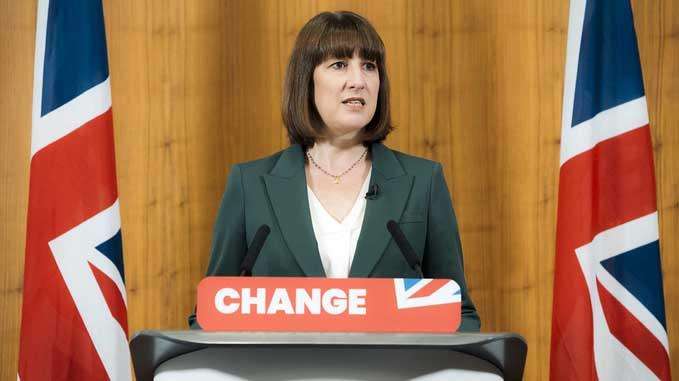The most prominent social mobility expert in Britain has accused Sir Keir Starmer of "fudging the facts" over his educational background.
In a piece for The Telegraph, Sir Peter Lampl, the founder of the Sutton Trust and a former adviser to Sir Tony Blair, criticized the Prime Minister's VAT assault on private schools.
Sir Peter, who attended Reigate Grammar, the same school as Sir Keir, makes his first significant statement since retiring, accusing the prime minister of "pretending" that it was a state school and claiming that the policy denies less fortunate pupils the same educational chances as the prime minister.
The school was funded by the council when Sir Keir joined but two years later it became independent. The local authority agreed to cover fees for pupils who had enrolled before the conversion and Sir Keir then received a bursary to continue his studies in the sixth form. The school now charges up to £9,150 a term for older pupils.
Sir Peter, whose charity is credited with transforming the lives of thousands of young people, writes: “I don’t pretend the school we went to was a state school, Starmer does. But he is fudging the facts.
“I am helping young people to benefit from an education that made all the difference to me, Starmer is destroying the opportunities to have the same chances he had.”
The Prime Minister said of his education in a recent biography by Tom Baldwin: “As far as I was concerned, I started school as a ‘state boy’ and I finished as one too.”
A No 10 source insisted that Sir Keir had been upfront about the fee arrangement.
Sir Peter’s comments will come as a blow for the Prime Minister as he is widely acknowledged as one of the UK’s leading educational philanthropists.
Knighted in 2003 for services to access to higher education, Sir Peter acted as an adviser to New Labour on education, visiting Sir Tony at Chequers and earning the respect also of Gordon Brown, who praised his “life transforming” work.
Once described as Sir Tony’s “favourite millionaire”, he has raised almost a billion pounds for British education and recently said that his trust had impacted government policy on more than 30 occasions.
In his article Sir Peter says Labour’s “regressive” VAT policy would deprive thousands of children the same opportunities that Sir Keir enjoyed by “vandalising” the independent school sector.
He writes: “It’s not as if the Prime Minister doesn’t intimately understand the impact of these schools – an impact which is not purely about academic scores and exam passes.
“In his speech at conference last year, Sir Keir devoted a sizeable passage to how learning the flute while at Reigate Grammar not only gave him a passion for classical music but also helped him develop ‘skills for life’.
“Skills for life, indeed. Those frequently intangible but vital accomplishments beyond mere exam passes are exactly what is in the educational DNA of our independent schools, and what they specialise in.
“At Reigate, when Starmer and I were there, the school offered its pupils huge numbers of co-curricular activities, many, many more than local state schools could manage. Music, drama, sport, art, DofE, CCF, public speaking and debating – it was all there to be enjoyed and learnt from, not just in the classroom but beyond.”
Sir Peter points out that while Sir Keir claims to want to offer more children the broad education the independent sector is known for, his attack on private schools will hinder not harm that aim.
He adds: “Frankly, the Prime Minister should know better. He should want more children from low and middle-income homes to have access to independent school facilities, as we both did, not fewer.
“He shouldn’t be punishing and diminishing these places; he should be finding ways to better exploit and share what they have. He shouldn’t be working to close down independent schools: he should be making efforts to open them up to a wider demographic.”
The Prime Minister has insisted his VAT policy on private schools will raise up to £1.8 billion each year by the end of the decade. Ministers have also justified it as a Robin-hood style tax scheme that will skim off money for state schools from wealthy parents who can afford fee rises.
But Sir Peter warned it could deal a death blow to bursaries and other social mobility initiatives by forcing “hard-pressed independent schools into isolation as they struggle to survive”.
“You may think of this as a narrow issue, affecting only the wealthy and the privileged. It’s not,” he wrote.
“Starmer should know better than to be vandalising an education sector that does so much for this country’s young people and that… did so much for him.”
Since Labour’s VAT raid was announced, many independent schools have announced they have no choice but to cut down their outreach work and bursaries. Bolton School, which has 2,500 pupils and traces its origins back to 1516, said in January it would wind back scholarship funding for poorer students as “a direct impact of VAT”.
Meanwhile, Guy Ayling, the head teacher of Mount Kelly, a day and boarding school in Devon, said last year he was considering halving the £950,000 that it spends annually on bursaries and scholarships.
Headteachers have also accused the Government of unleashing an ideological battle on private schools and attempting to abolish the sector by the backdoor.
Andrew McGarva, the principal at Morrison’s Academy in Perthshire, said in January it was a “politically motivated move that risks harming children, families and communities across the UK”.
Reeves called for abolition of private schools
The Telegraph revealed last year that Rachel Reeves, the Chancellor, called for the abolition of private schools six years ago and backed a campaign to ban them.
In a series of separate posts on Twitter from 2019, when Ms Reeves was a backbench MP, she said: “On private schools… my view is that we should work to abolish private education.”
The Government currently faces legal action over its flagship education policy after a group representing more than half of private schools began a High Court challenge.








.svg)


